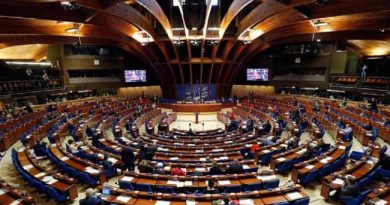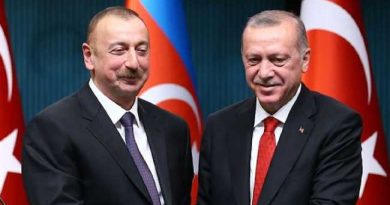Merkel of Germany: Toughest time for Europe since World War 2
 The sovereign debt crisis that has spread to eurozone’s periphery represents Europe’s “toughest hour since World War II,” according to Angela Merkel, who spoke a day after Italy joined Greece in seeking a technocrat government.
The sovereign debt crisis that has spread to eurozone’s periphery represents Europe’s “toughest hour since World War II,” according to Angela Merkel, who spoke a day after Italy joined Greece in seeking a technocrat government.
Addressing thousands of delegates from the Christian Democrat Union (CDU) in Leipzig yesterday, Merkel accepted that Germany will have to make more sacrifices.
“The challenge of our generation is to finish what we started in Europe, and that is to bring about, step by step, a political union,” Reuters quoted Merkel as saying. “Europe is in one of its toughest, perhaps the toughest hour since World War II.”
The bitter statement came hours after the spread between German and Spanish 10-year benchmark bond yields hit record levels, reflecting growing concerns over Spain’s economy. Meanwhile, the Portuguese economy contracted 0.4 percent in the third quarter, according to official data released yesterday.
Merkel said Germany had a responsibility toward its partners and was vulnerable itself if other eurozone states were dragged into the crisis, reminding the party that 60 percent of German exports go to the European Union.
“Irish problems are Slovak problems, Greek problems are Dutch problems, and Spanish problems are our problem,” she said. “Our responsibility does not end at our borders.”
At the same time she made clear there were red lines that Germany was not prepared to cross, rejecting joint eurozone bonds and other quick fixes that Germany believes would discourage countries from running responsible fiscal policies.
Meanwhile, the spread, or difference, between German and Spanish 10-year benchmark bond yields hit record levels. As Spain 10-year bond yields jumped sharply to 6.026 percent from Friday’s 5.851 percent, the spread with the German bund, considered the safest investment in Europe, widened to 4.225 percentage points.
Rates above 6 percent on long-term bonds normally signal stress in the market as investors demand more in return for their money. Yesterday’s showing was the first time since August that Spanish bonds hit such levels.
Speaking to Agence France-Presse, dealers said that after some limited respite with the emergence of new governments in Greece and in Italy, the markets are deciding that they prefer the safety of German bonds than to take on any new risk.
The German 10-year bond was yielding just 1.808 percent, while that of France was at 3.384 percent.
In another development, the Portuguese economy, already under pressure from stiff austerity measures, shrank 0.4 percent in the third quarter, official data showed. The contraction comes after a 0.1 percent contraction in the second quarter.
Output in the third quarter, on a 12-month comparison, fell 1.7 percent, after falling 1 percent in the three months to June, the national statistics institute said. Reflecting on the worsening outlook, the institute said that the sharper fall in the third quarter is “mainly the result of slow export growth … and of a more significant reduction in investment.”
Monday, November 14, 2011
SOURCE: HURRIYET DAILY NEWS





